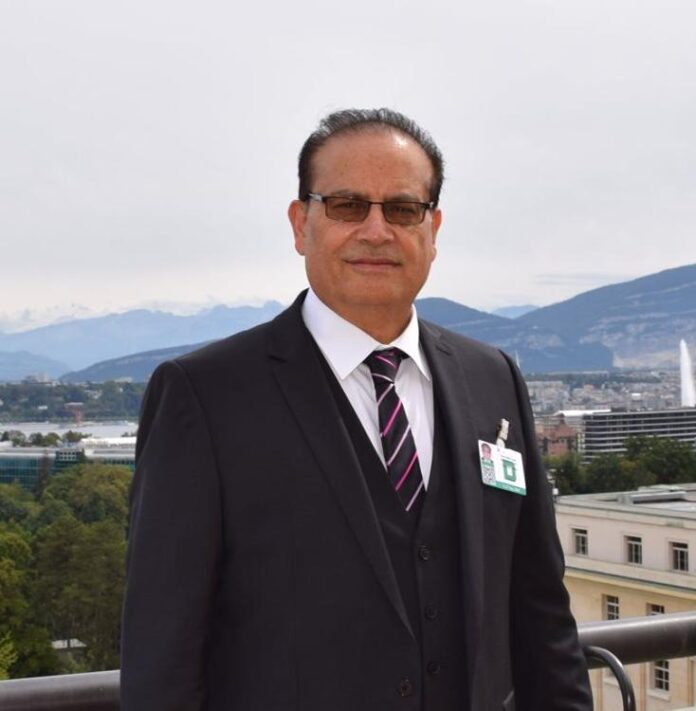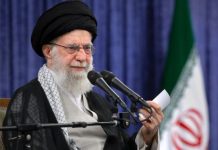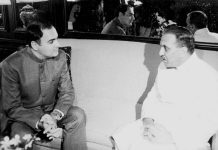By Qamar Bashir
The American economy is again showing signs of vitality. With the Federal Reserve cutting interest rates, the hope of lower borrowing costs has sparked renewed optimism in trade, investment, and employment. Markets are responding with resilience, businesses are regaining confidence, and households are cautiously optimistic about relief from inflation. Yet behind the statistics, the true pulse of the nation is best felt not in the halls of power, but in the daily interactions between ordinary citizens. For a newcomer, one of the richest ways to understand America is not only through its politics and headlines but through working shoulder to shoulder with its people, in their neighborhoods and workplaces. My journey since migrating in September 2024 has been exactly that—a yearlong immersion into the everyday life of the United States.
My introduction came swiftly through politics. Soon after arrival, I was hired by Working America, a grassroots canvassing arm of the AFL-CIO, tasked with door-to-door outreach. The mission was ambitious: convince voters in Michigan, a critical swing state, to support Vice President Kamala Harris and Senate nominee Alyssa Slotkin. The campaign invested heavily—over 400 workers were hired at competitive wages, mobilized to tilt the state blue. Yet, despite the effort, Harris and Slotkin both lost resoundingly, while Donald Trump’s message resonated strongly with voters. That experience of knocking on doors and engaging in candid conversations with American families was invaluable. I learned firsthand that the economy outweighed all other concerns for most households. Voters were blunt, pragmatic, and deeply invested in their livelihoods.
From politics, my path shifted to commerce when I joined Home Depot, one of the largest consumer hardware chains in the world. With over 2,300 stores across the United States, Canada, and Mexico, Home Depot is more than a retailer—it is a cultural institution. Its aisles of lumber, hardware, gardening supplies, and household goods are where America’s do-it-yourself ethos thrives. Over the course of a year, I interacted with more than 10,000 customers, an experience that revealed the diversity of American society, from the elderly woman lifting 50-pound bags of mulch on her own to immigrant laborers purchasing tools to build a future in their adopted land.
My colleagues reflected the same diversity. Many were students in their twenties, eager to earn money while completing their education. Others were retirees, working to stay active and engaged. Supervisors were consistently encouraging, patient, and generous with their knowledge, creating a work environment built on cooperation and mutual respect. The culture of sharing—skills, stories, and even personal aspirations—was profoundly enriching. These interactions created a microcosm of America itself: multigenerational, multiethnic, and bound together by a shared pursuit of opportunity.
Among customers, patterns emerged. The majority were middle-aged or elderly white Americans, often shopping as families. I witnessed countless examples of parents supporting their adult children in building or renovating homes—contributing not just financially but with their own expertise and labor. These acts of solidarity underscored a family-centric ethos, where generations stand behind one another in pursuit of stability and growth. Elderly women, in particular, impressed me with their resilience, unflinchingly hauling heavy bags of soil and fertilizer, embodying a spirit of independence that refused to yield to age.
Alongside them were immigrants from Ukraine, Poland, France, the Middle East, and Asia. Many were cautious with credit card transactions, double-checking details to protect themselves from fraud. South Asians, particularly Indians and Pakistanis, were polite, efficient, and meticulous in their purchases, often focused on home painting, plumbing, or gardening. East Asians—Chinese, Koreans, Vietnamese—approached shopping with equal caution, reflecting cultural habits of vigilance. Latino customers, frequently laborers, arrived in groups, often with limited English but remarkable resourcefulness, buying tools and materials for construction and repair work.
African American customers, too, left strong impressions. Many carried themselves with confidence and self-reliance, often declining assistance from associates. While some interactions required careful navigation, the majority revealed a pride in independence and a determination to manage their affairs on their own terms. Meanwhile, white Americans stood out for their openness and generosity, often splitting household expenses equitably between spouses, and approaching associates with courtesy and ease. Young white couples shopping with children brought life and laughter to the store aisles, their children’s golden hair and innocent chatter a reminder of the vitality of family life.
Religion, too, surfaced in subtle ways. Conversations revealed that many Americans are deeply Christian, with regular Bible reading shaping their worldview. When I explained Islam’s respect for Jesus and Mary, and the Quran’s insistence on reverence for previous prophets, several were surprised and intrigued. For many, this was their first time hearing of the similarities between Islam and Christianity. These dialogues, though small, were powerful in bridging understanding and dispelling misconceptions.
Through these experiences, I came to appreciate the dual fabric of American life: the resilience and industriousness of ordinary people, and the larger political and economic forces shaping their choices. On one hand, Trump’s “America First” agenda resonates strongly, promising to curb illegal immigration, reduce homelessness, combat gangs, and restore national pride. On the other, skepticism exists—rising costs of essentials frustrate households, even those who support the administration. Yet, optimism endures, rooted in the belief that once policies mature, they will deliver tangible benefits.
What struck me most was the balance between leadership and people. Politicians and policymakers set the stage, but it is in the hands of ordinary Americans—lifting heavy bags of fertilizer, saving meticulously for home repairs, canvassing neighborhoods, or splitting bills at the checkout—that the nation’s resilience resides.
One year after arriving in the United States, I feel enriched not just by professional experiences but by a deeper understanding of the American character. From politics to retail, from elderly gardeners to immigrant laborers, from religious dialogues to economic frustrations, I have seen America up close. And what I have found is a society marked by hard work, generosity, independence, and a cautious but enduring hope for a better tomorrow.
For me, this is the true greatness of America: not only in its vast economy or global influence, but in the everyday dignity of its people. Their struggles and triumphs, their resilience and openness, their ability to debate leadership yet unite in family and community—these are what sustain the nation. As America moves forward under shifting political winds and evolving economic realities, it is this spirit of ordinary people that will continue to make it great.
By Qamar Bashir
Press Secretary to the President (Rtd)
Former Press Minister, Embassy of Pakistan to France
Former Press Attache to Malaysia
Former MD, SRBC | Macomb, Michigan, USA

















